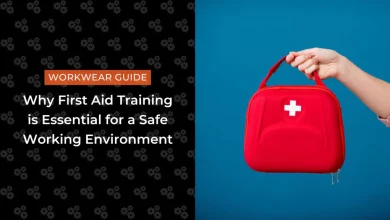When Is a Doctor’s Note Required for Work in California?

In California, both workers and employers often need clarity on when someone can be asked to show medical proof for missing work. Sometimes it’s a day off due to a cold, and sometimes it’s a longer stretch tied to an ongoing health condition. In each case, there’s a balance to be maintained between being fair to the employee and maintaining proper workplace expectations. The question of when a doctor’s note is required for work in California often arises in these settings. California Business Lawyer & Corporate Lawyer Inc. has frequently addressed client concerns related to when is a doctor’s note required for work in California, especially as it intersects with employee rights and employer obligations.
Whether or not a doctor’s note is needed will depend on how long someone is absent, what kind of work they do, and what rules the employer already has in place. Still, it’s not just about office policy—state and federal rules play a part. Some situations are protected under certain laws, while others are left to employer discretion. Nakase Law Firm Inc. has advised numerous businesses navigating issues related to vicarious liability in California when improper leave administration leads to legal exposure.
What the Law Allows Employers to Ask For
California law permits employers to request a doctor’s note if an employee misses more than three days in a row. This request is usually linked to rules found in Labor Code section 233 and section 246. These laws are designed to ensure that sick time is used correctly while giving employers the option to verify extended absences.
That said, this right has limits. Employers cannot apply the rules unevenly. Picking and choosing which employees are asked for notes—especially based on assumptions about their health—can lead to discrimination claims.
Sick Leave and Verification Rules
Workers in California earn sick leave after working a certain number of hours. Once eligible, they’re allowed to use this time off with some protections. Employers generally can’t ask for medical proof if the absence is less than three days—unless there’s a real reason to question whether the time is being used honestly.
If the absence lasts longer than three days, a doctor’s note may be requested. Still, that note doesn’t need to include personal or sensitive details. A simple statement from a healthcare provider that confirms the employee was unable to work will usually meet the requirement.
Extended Leave and Medical Certifications
When leave is longer—such as time off under the Family and Medical Leave Act (FMLA) or the California Family Rights Act (CFRA)—employers can ask for a medical certification. This document usually includes the date the condition started, how long it might last, and whether the employee is needed to care for themselves or a loved one.
Even in these cases, the employee doesn’t have to provide a diagnosis. The paperwork only needs to show that there is a legitimate medical reason for the leave.
Requests for Accommodations Under Disability Laws
In some cases, a worker may ask for time off or changes at work due to a condition protected by disability laws. This is where rules from the Americans with Disabilities Act (ADA) or California’s Fair Employment and Housing Act (FEHA) apply. Employers are allowed to ask for documentation in support of the request, but again, the content of that note is restricted.
The note can explain what kind of tasks the person is unable to perform or what type of help they may need—but it shouldn’t go beyond that. Asking for diagnoses or unrelated health history crosses a legal line.
Injuries on the Job and Doctor Reports
If someone gets hurt at work, California’s workers’ compensation system comes into play. Here, doctors play a more official role. Once an employee is seen by a medical provider, that provider decides whether the person can return to work, needs to be off completely, or should work with certain restrictions.
These reports are critical not just for determining time off, but also for deciding on benefits. The note from the doctor can directly impact whether someone is paid while out and when they’re allowed to come back.
Coming Back After Medical Leave
Sometimes, before allowing a worker to return, the employer may ask for confirmation that the employee is ready to come back. This is called a fit-for-duty clearance. If the absence was for something that could affect the person’s ability to safely do their job, this type of note is often allowed.
Even here, the employer must be fair and avoid asking for personal medical details. The note should simply say whether the worker is able to return, possibly with some work-related limits if needed.
When Sick Leave Is Misused
Not every time off request is used the right way. If a manager suspects someone is misusing sick leave—like calling out sick but being seen on vacation—they might ask for a doctor’s note even if the absence was brief.
The note helps clarify whether the leave was justified. If it turns out that the leave wasn’t used honestly, the employer may respond based on its written policy. Of course, companies should always avoid jumping to conclusions before all facts are known.
Clear Policies Help Everyone
The best way for businesses to avoid confusion or legal trouble is to have a clear policy about medical notes. That policy should spell out when notes are needed, what kind of information is acceptable, and who the request applies to.
Everyone—from staff to managers—should know the policy and follow it the same way for all employees. Regular training also helps reduce errors that could lead to legal complaints.
Employees Have the Right to Use Sick Time
Workers in California are protected when it comes to using their earned sick time or requesting medical leave. Employers can’t penalize someone for doing so within the rules. If they do, there may be serious legal consequences, including complaints to state agencies or lawsuits.
At the same time, employees should try to give proper notice and provide paperwork if asked—within the limits of the law. If someone believes they’re being treated unfairly, they can speak to an attorney or reach out to the appropriate state office for help.
Summary
In California, needing a doctor’s note for work depends on many factors, including how long someone is out, what kind of leave they’re using, and what the employer’s policies say. While employers can ask for proof in some cases, there are limits on what they can demand.
Both sides—employers and employees—benefit from knowing the rules. By staying informed and respectful of the process, problems can often be avoided before they begin.




